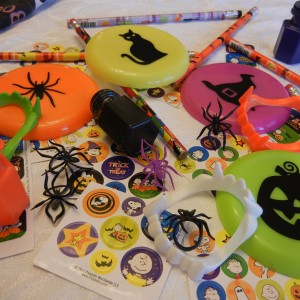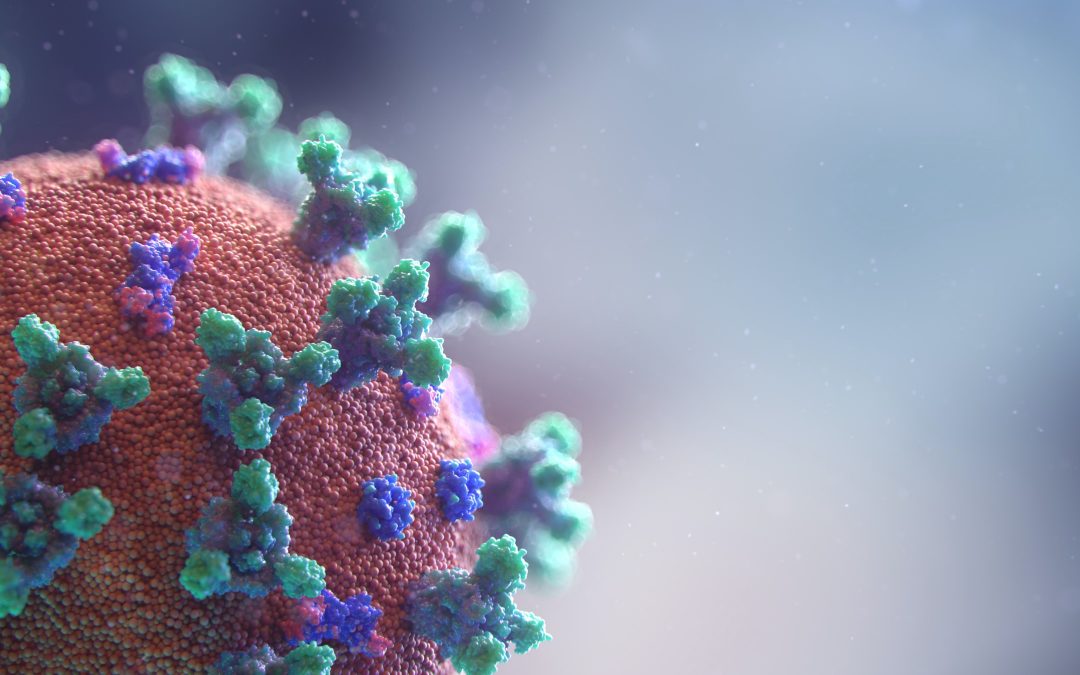
by Roseman Dental | Oct 12, 2021 | Dental Clinic Blog, Oral Health, Roseman Dental - NV, Roseman Dental - UT
 Halloween is a time of year when ghosts, ghouls, princesses and superheroes alike head out into their neighborhoods in search of scrumptious candy. It’s also a holiday that can wreak havoc on your oral health because of the volume—and type—of candy and sugar you are consuming. Whether you’re planning to dress up for a Halloween party, wondering what to give out this year, or just want to be prepared for when your kids bring home buckets of sugar, here are some tips to help you avoid oral health problems.
Halloween is a time of year when ghosts, ghouls, princesses and superheroes alike head out into their neighborhoods in search of scrumptious candy. It’s also a holiday that can wreak havoc on your oral health because of the volume—and type—of candy and sugar you are consuming. Whether you’re planning to dress up for a Halloween party, wondering what to give out this year, or just want to be prepared for when your kids bring home buckets of sugar, here are some tips to help you avoid oral health problems.
Best Halloween Candies for Your Teeth
While your dentist will tell you (correctly) that no candy is actually “good” for your teeth, there are some options that are less bad and should be selected when possible. That includes things like chocolate without sticky fillings or nuts, marshmallows, and softer cookies that won’t stick to your teeth (check out the recipe for a delicious pumpkin season treat below). Even if you avoid sticky treats, it’s important to realize that the sugar in candy feeds bacteria in your mouth, contributing to the buildup of plaque, so you should rinse your mouth with water and try to brush your teeth soon after consuming any sugar.
Worst Halloween Candies for Your Teeth
Sticky treats are by far the worst because they leave sugary nuggets in the deep grooves of your teeth where they are available for bacteria to feed on. That includes things like taffy, caramel, coconut and nuts. Other bad choices include hard candies like lollipops, jawbreakers, and Jolly Rancher™ candies, because they expose your teeth to sugar for a prolonged period of time while they are dissolving (which raises acidity levels in your mouth and damages tooth enamel). Plus, if you try to bite them, your teeth might even chip or break. Sour candies should be avoided because they are highly acidic, as well as candies like Pixie Stix® powder that provide straight sugar for the bacteria in your mouth to consume.
Individuals with braces should be especially careful about eating these treats. Make sure to speak with your orthodontist prior to Halloween to get a list of treats to specifically avoid because they can get stuck in and around the braces, causing decay and damaging the hardware in your mouth.
Healthy Candy Alternatives
 If you plan on being home to pass out treats for trick-or-treaters, there are various healthy, non-candy alternatives you can give to those who come knocking on your door. Healthy alternatives include mini packages of raisins, pretzels, or crackers, which can be purchased at your local grocery store and are typically in Halloween-themed packaging.
If you plan on being home to pass out treats for trick-or-treaters, there are various healthy, non-candy alternatives you can give to those who come knocking on your door. Healthy alternatives include mini packages of raisins, pretzels, or crackers, which can be purchased at your local grocery store and are typically in Halloween-themed packaging.
For folks who want to avoid handing out any food items to trick-or-treaters, there are plenty of things available at a reasonable price. You could hand out pencils, stickers, erasers, slime, spider rings, mini coloring books, temporary tattoos, or plastic vampire fangs. You can find all of these in Halloween designs, and buy them in bulk at places such as Oriental Trading Company, U.S. School Supplies, and Amazon.com.
Check out this braces- and teeth-friendly recipe to enjoy for Halloween and the fall season:
Pumpkin Chocolate Chip Cookies
1 cup pumpkin puree (canned)
1 cup granulated sugar
1/2 cup vegetable oil
1 egg
2 tsp. milk (whole)
1 tsp. vanilla
2 cup all-purpose flour
2 tsp. baking powder
2 tsp. pumpkin pie spice
1/2 tsp. salt
1 tsp. baking soda
1 tsp. chocolate chips (mini)
Directions
- Combine pumpkin puree, sugar, vegetable oil, egg, milk, and vanilla; set aside
- Combine together all dry ingredients, except for chocolate chips; add to wet ingredients, combine well
- Stir in chocolate chips
- Bake at 350 °F for 10-15 minutes

by Roseman Dental | Oct 12, 2021 | Dental 360, Dental Clinic Blog, Oral Health
Maintaining good oral health is more than just about the health of your mouth, teeth and gums. Over the years studies have demonstrated a strong link between oral health and overall health and wellness.
“Mouths are teeming with mostly harmless bacteria,” said Erin Greene, DDS, program director of the Advanced Education in General Dentistry residency program and dentist at Roseman University College of Dental Medicine in Henderson. “Normally the body’s natural defenses and good oral health care — daily brushing and flossing, and regular dental visits — keep the bacteria under control. Without proper oral hygiene, bacteria in the mouth can reach levels that may lead to oral infections, such as tooth decay and gum disease. With the mouth being the entry point to the digestive and respiratory tracts, some of these bacteria can enter the body and cause disease.”
Poor oral hygiene has shown in some studies to contribute to endocarditis, which is an infection of the lining of the heart, cardiovascular disease, and pneumonia. Now, a new study published in the Journal of Clinical Periodontology by researchers at McGill University in Montreal, Canada have found a possible link between oral hygiene and higher rates of complications and more fatal outcomes for individuals diagnosed with COVID-19.
The McGill researchers discovered that COVID-19 patients with gum disease were 3.5 times more likely to be admitted to the intensive care unit, 4.5 times more likely to need a ventilator, and 8.8 times more likely to die when comparing to those without gum disease.
Greene said, “The study found that blood levels of biomarkers which indicate inflammation in the body were significantly higher in COVID-19 patients with gum disease, which may explain the higher rates of complications for those patients.”
In addition to preventative measures, such as masks, frequent hand washing and social distancing, Greene encourages attention to oral hygiene as another way to help protect oneself from COVID-19. “People of all ages should be brushing their teeth at least twice a day with a fluoride toothpaste, flossing daily, and replacing toothbrushes every three months,” she said. “It’s also important to schedule regular dental cleanings and check ups to identify and address any issues.”
Unfortunately, the COVID-19 pandemic caused many Americans to delay their dental care. An article published in JAMA Health Forum in December 2020 reported that one in five adults in the United States – roughly 20 percent – reported experiencing delayed care during the COVID-19 pandemic. In fact, 31-42 percent reported postponing health care for non-COVID-19 issues. This included dental care.
Putting off dental care – or neglecting it entirely – can eventually lead to bigger problems. An absence of treatment increases your chances for health-related complications, more severe illnesses, and higher costs.
“Since the start of the COVID-19 pandemic, I’ve seen a lot of major dental issues. With the shutdown, fears about going to the dentist, and people losing their jobs, many people had no choice but to ignore their dental health, unless they were experiencing significant pain,” said Greene. “With the potential link between oral hygiene and COVID-19 severity, it’s more important than ever to see your dentist regularly.”
Oral health concerns like tooth decay and gum disease can be prevented with regular exams and cleanings. With COVID vaccinations readily available and life returning to normal, now is a great time to schedule the services you may have been delaying. Roseman Dental offers cutting edge care at lower rates than traditional dental or orthodontic clinics.
Article by Jason Roth

 Halloween is a time of year when ghosts, ghouls, princesses and superheroes alike head out into their neighborhoods in search of scrumptious candy. It’s also a holiday that can wreak havoc on your oral health because of the volume—and type—of candy and sugar you are consuming. Whether you’re planning to dress up for a Halloween party, wondering what to give out this year, or just want to be prepared for when your kids bring home buckets of sugar, here are some tips to help you avoid oral health problems.
Halloween is a time of year when ghosts, ghouls, princesses and superheroes alike head out into their neighborhoods in search of scrumptious candy. It’s also a holiday that can wreak havoc on your oral health because of the volume—and type—of candy and sugar you are consuming. Whether you’re planning to dress up for a Halloween party, wondering what to give out this year, or just want to be prepared for when your kids bring home buckets of sugar, here are some tips to help you avoid oral health problems. If you plan on being home to pass out treats for trick-or-treaters, there are various healthy, non-candy alternatives you can give to those who come knocking on your door. Healthy alternatives include mini packages of raisins, pretzels, or crackers, which can be purchased at your local grocery store and are typically in Halloween-themed packaging.
If you plan on being home to pass out treats for trick-or-treaters, there are various healthy, non-candy alternatives you can give to those who come knocking on your door. Healthy alternatives include mini packages of raisins, pretzels, or crackers, which can be purchased at your local grocery store and are typically in Halloween-themed packaging.
